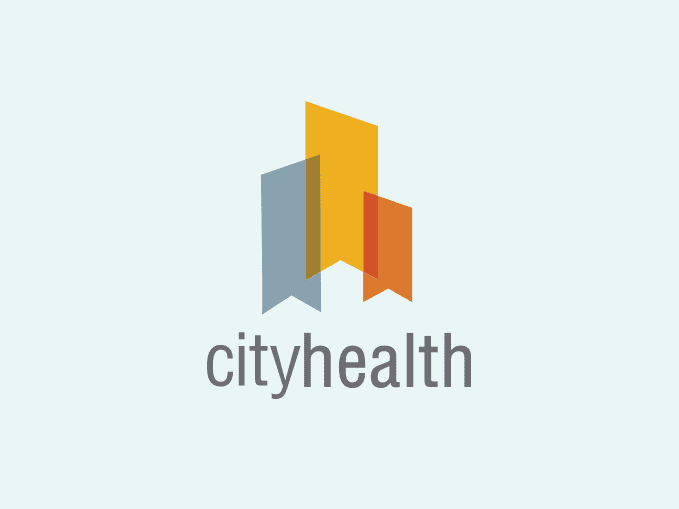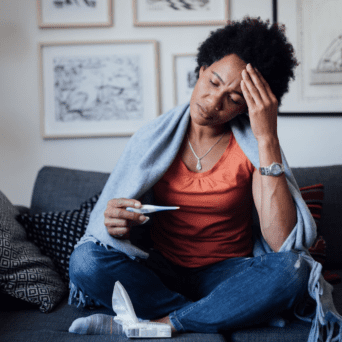26 Million American Workers Don’t Have Access to a Single Day of Earned Sick Leave
WASHINGTON, D.C. — January 26, 2022 — As cities across the U.S. report a record-breaking COVID-19 surge amid the spread of the omicron variant, millions of workers, many of whom are considered essential, are left without the ability to take paid time off to rest and recover when they or a family member is sick. A new report by CityHealth, an initiative of the de Beaumont Foundation and Kaiser Permanente, and the National Partnership for Women & Families points to a policy solution that could support all workers: Earned Sick Leave. These policies allow workers to accrue time off with pay to use when they must be absent from work to take care of a personal or family member’s illness.
“No one should be forced to choose between economic security and their health. Unfortunately, nearly one in four private sector workers have to make this impossible choice when they or their family is sick,” said Katrina Forrest, J.D., Co-Executive Director of CityHealth. “Too often, low-income earners and workers of color are those most impacted by the COVID-19 pandemic and existing health inequities, and are also those most likely to lack access to Earned Sick Leave.”
Access to Earned Sick Leave is not only a public health issue — it is also one of economic security. Workers without the ability to take paid sick time must either forgo critical wages — and possibly risk job loss — in order to stay home and recover, or come to work sick and risk their own health and that of their coworkers and the public. The coronavirus pandemic has exacerbated this tension by significantly increasing people’s need for time off for the purposes of treatment of and recovery from illness, testing, child and elder care closures, vaccination, and recovery from vaccination.
“The COVID-19 pandemic has made it clear that illness can impact anyone at any time,” said Catherine D. Patterson, MPP, Co-Executive Director of CityHealth. “Earned Sick Leave is an important tool in preventing the spread of infectious diseases like COVID-19 and protecting the health of our workforce.”
The lack of Earned Sick Leave protections can widen economic and racial disparities. Nearly seven in 10 of the lowest-income private sector workers don’t have access to even a single earned sick day. Nearly half (48%) of Latinx workers and more than one-third (36%) of Black workers report having no paid time away from work of any kind. The consequences of this lack of access can be devastating for the health and economic well-being of workers, their families, their coworkers, and their communities.
State and local governments have stepped up to fill the gap. Thirty-seven jurisdictions nationwide have adopted Earned Sick Leave laws, including 13 states, 20 cities, and four counties. Unfortunately, state-level efforts to restrict local action around Earned Sick Leave are regularly introduced in states around the country. To date, laws prohibiting local Earned Sick Leave ordinances have been passed in 19 states.
“Earned sick leave and other policies that support families are good for workers and businesses in states and localities across the country,” said Jocelyn Frye, President of the National Partnership for Women and Families, a co-author of the report. “These policies are vital to economic strength of our nation and the economic stability of families, and are particularly beneficial to women and workers of color who often don’t have access to them.”
Earned Sick Leave is one of 12 policies in CityHealth’s 2.0 package of policy solutions that the initiative will use to assess cities in 2022. Learn more about Earned Sick Leave and download the report here.
###
About CityHealth
CityHealth, an initiative of the de Beaumont Foundation and Kaiser Permanente, works to advance a package of tried and tested policy solutions that ensure all people in our largest cities have access to healthy choices. Together with visionary city leaders, CityHealth helps cities adopt policies that can make their communities healthy and resolve critical health disparities — now and decades down the road. Learn more at www.cityhealth.org.
About the National Partnership for Women and Families
The National Partnership for Women & Families is a nonprofit, nonpartisan advocacy group dedicated to promoting fairness in the workplace, reproductive health and rights, access to quality, affordable health care and policies that help all people meet the dual demands of work and family. More information is available at NationalPartnership.org.




